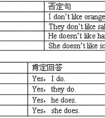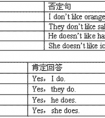根据短文内容及首字母提示补全单词How can you study well? I think you should have good study habits. Then you can spend less time but learn m小题1:. First, make-九年级英语
题文
| 根据短文内容及首字母提示补全单词 How can you study well? I think you should have good study habits. Then you can spend less time but learn m 小题1: . First, make the full use of your time. Are your books open? If so, please t 小题2: off your TV and out away your snacks. Of course, you need some time to play. But you should play a 小题3: study. Remember: study comes first. Second, listen to your teachers c 小题4: in your class. You know, it is very important. If you have questions, just ask your teachers, they are very glad to h 小题5: you. Third, do your homework by yourself. M小题6: you can’t work out a problem. You can ask for help. But you can’t just copy the answer. Make s 小题7: you understand it. Fourth, take a notebook with you, sometimes you may have some ideas or questions. Please write them d 小题8: . Then you can talk to your teachers, parents or f 小题9: . These four tips are helpful to you. Please have a try! You may s 小题10: if you have good study habits. |
答案
小题1:more 小题2:turn 小题3:after 小题4:carefully 小题5:help 小题6:Maybe 小题7:sure 小题8:down 小题9:friends 小题10:succeed |
试题分析:本文讲述了学习要有好的学习习惯。文中介绍了四个好的学习习惯:充分利用时间、认真听课、独立完成作业以及随身带笔记做记录。 小题1:有了好的学习方法自然是在较少的时间内学到的知识更多;故答案为more 小题2:如果打开了书,那么,把电视关上并且要远离零食。Turn off意为“关闭”;故答案为turn 小题3:但是你应该学习之后再玩耍,根据后面的一句Remember: study comes first.可知答案为after 小题4: 其次,在课堂上认真听老师讲课。Carefully为副词做状语修饰动词短语listen to;故答案为carefully 小题5:如果你有问题尽管问老师,他们是很高兴能够帮助你的。故答案为help 小题6:或许你解决不出某个问题。根据后面的You can ask for help.可知,在做作业的过程中肯定会有不会的问题,表达可能性的猜测;故答案为Maybe 小题7:确保要懂得这一点。Make sure意为“确信,确保”;故答案为sure 小题8:请将他们写下来。前面提到take a notebook with you, sometimes you may have some ideas or questions,所以有了想法就可以随时记下来,write down意为“写下来,记下来”;故答案为down 小题9:然后你可以将你的想法告诉你的父母、老师或者朋友。即告诉你身边最要好的人;故答案为friends 小题10:如果你拥有好的学习习惯你可能会成功的。故答案为succeed |
据专家权威分析,试题“根据短文内容及首字母提示补全单词How can you study well? I t..”主要考查你对 实义动词,实义动词的单数第三人称形式,动词短语 等考点的理解。关于这些考点的“档案”如下:
实义动词实义动词的单数第三人称形式动词短语
考点名称:实义动词
- 实意动词:
即行为动词,表示动作的动词。实义动词与系动词是相对的,能独立用作谓语。
它分为及物动词和不及物动词两种:
及物动词是指后面要求有直接宾语的动词;
不及物动词指后面不需要跟宾语的动词。 实意动词使用方法:
及物动词
后面必须跟宾语意义才完整的实义动词,叫做及物动词(transitive verb)。如:
I believe that the committee will consider our suggestion.我相信委员会将会考虑我们的建议。
“How long can I keep the book ?”Harry asked.哈里问:“这本书我可以借多久?”
Dr. Bethune set us a good example. 白求恩大夫给我们树立了好榜样。
Crude oil contains many useful substances.原油含有许多有用的物质。
不及物动词
本身意义完整后面不须跟宾语的实义动词,叫做不及物动词(intransitive verb)。如:
Birds fly.鸟会飞。
It happened in June 1932.这件事发生于一九三二年六月。
My watch stopped.我的表停了。
She spoke at the meeting yesterday evening. 她在昨天晚上的会上发了言。
兼作及物动词和不及物动词
英语里有不少实义动词可以兼作及物动词和不及物动词。这样的动词又有两种不同的情况
a)兼作及物动词和不及物动词时,意义不变。试比较:
Shall I begin at once?我可以立刻开始吗?(begin作不及物动词)
She began working as a librarian after she left school.她毕业后当图书馆管理员。(began作及物动词)
When did they leave Chicago?他们是什么时候离开芝加哥的?(leave 作及物动词)
They left last week. 他们是上周离开的。(left 作不及物动词)
b)兼作及物动词和不及物动词时,有时意义不尽相同。如:
Wash your hands before meals.饭前要洗手。
Does this cloth wash well? 这布经得起洗吗?- 英汉实意动词用法比较:
与汉语的比较,有时英语动词的及物和不及物的用法,与汉语的用法不一样,请注意下列两种情况:
a)有的动词在英语里只能用作不及物动词,而汉语则可用作及物动词,如arrive到达,agree同意,listen听。英语里这些动词后面常接介词。如:
We arrived at the railway station at noon.
我们于中午到达火车站。(at不能省去)
(比较:We reached the railway station at noon.)
Everybody listened to the lecture with great interest.
每个人都很有兴趣地听讲课。(to不可省去)
(比较:We all heard the lecture.)
Do they agree to the plan?他们同意这个计划吗?(to不可省去)
b)有的动词在英语里能用作及物动词,而在汉语里则不能用作及物动词,如serve为…服务。
Our children are taught to serve the people wholeheartedly.
我们的儿童被教以全心全意为人民服务
用于be动词之后,实义动词之前。 实意动词的用法:
肯定句:
主语+动词过去式+其它
否定句:
主语+助动词didn‘t+动词原型+其他
一般过去式:
Did+主语+动词原型+其他
考点名称:实义动词的单数第三人称形式
在一般现在时的肯定句中,当主语为非第三人称单数时,谓语动词用原形;
当主语为第三人称单数时,谓语动词用单数第三人称形式。- 实义动词的一般现在时的单数第三人称形式遵从“s,es, ies”六字母规则。如下表所示:


![How much does it ______ to fly from Yancheng to Hainan Island?[ ]A. cost B. payC. spend D. take-七年级英语](http://www.00-edu.com/d/file/ks/4/2/shiyidongci/2020-01-05/small7dcf2f05998de63e10cc3629787031c81578210087.png)

![He always _____TV in the evening. He _____ listening to the radio. [ ]A. watch, don't like B. watches, doesn't like C. watching, don't like D. watch, do-七年级英语](http://www.00-edu.com/d/file/ks/4/2/shiyidongci/2020-01-05/small45d599b4a60b84e61cec210bfbf051f51578214524.png)
![I'd rather ___ to the Mcdonald's Restaurant because I like to listen to quiet music.[ ]A. to go B. going C. go D. went-八年级英语](http://www.00-edu.com/d/file/ks/4/2/shiyidongci/2020-01-05/small1767bba1727fef2c035c53dcbd9bc20e1578209517.png)
